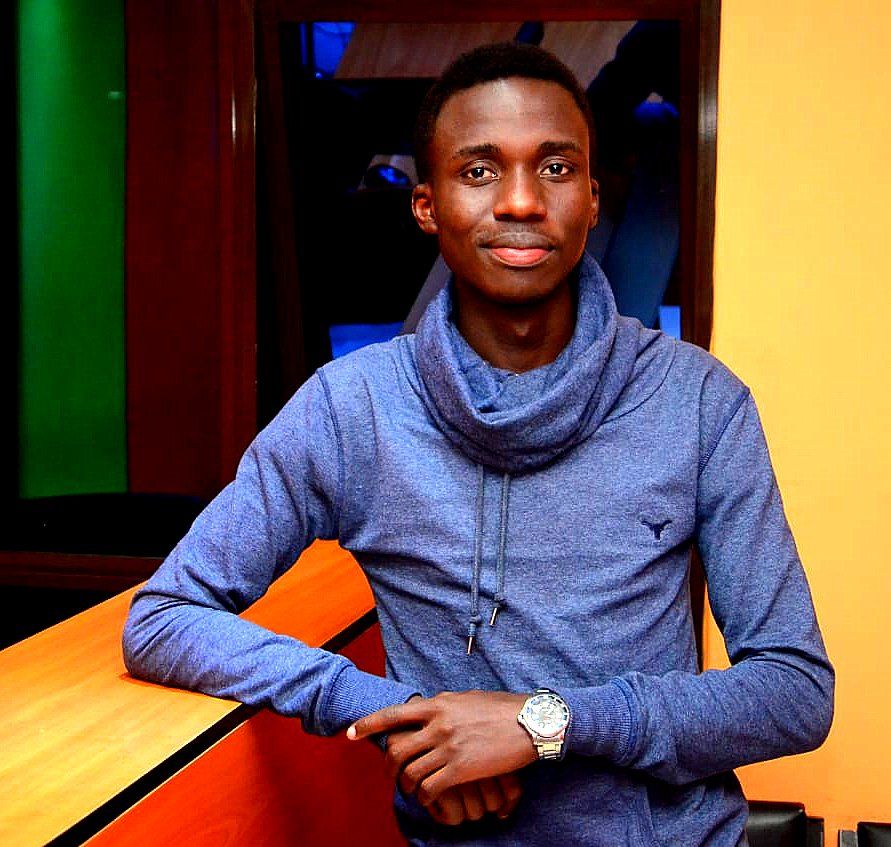In 2019 while working as an adjunct lecturer at Africa Digital Media Institute (ADMI), a student asked me my reason for getting into software engineering. The first answer that came to mind was passion. But after giving it some thought, I realised that it was not passion. It was serendipity. Because the truth is, I never started out with a passion for programming.
As a child, there was a point in time when I wanted to become a doctor, then I changed from that to a military officer and then a lawyer. In retrospect, every profession I imagined for myself, had been exposed to me in one way or another. The one exception was gaming. I loved (and still love) video games. However, gaming was out of the question as it was not a career path option; at least not in Kenya.
Fast forward to high school, and unlike most of my peers, I still wasn't sure what I wanted to do. I loved and was great at literature. But I was a straight-A student and there were not many straight-A students who majored in literature. I needed something befitting my "intellectual capacity" measured by societal norms – whatever that meant. I also loved physics and Maths. But by now, I had realised I had slight hemophobia, ergo a career in medicine was out of the question. The next best thing? Engineering. More specifically, Electronics, since it appealed to the side of physics I found most interesting. It was also the closest thing to gaming, or so I thought. But by the time I was completing my high school studies, I was still struggling to select which University I wanted to join. So much so that I failed to complete the admission forms.
When the results from my final high school exams came back, I had perfect scores – 83 out of the possible 84 points. This meant I could do any course I wanted to, in any university in Kenya. At the time, I had just moved in with my sister who lived in Tanzania. Overwhelmed with the sheer amount of decisions I had to make, I resolved to let things run their course.
During my time in Tanzania, I stumbled upon a small arcade and computer shop run by twin brothers. I walked in, found fellow gamers and instantly hit it off with them. The arcade became my joint. I would spend all day, every day, playing video games there. Eventually, I became friends with one of the twins and later got introduced to his identical brother, Joffrey. Joph and I had a lot in common. Besides gaming, we both loved animations and superheroes.
Over time, the twins would entrust me with running their shop. But first, they had to teach me how to use a computer. I'm not sure how my life would have turned out had they not done that.
This might sound silly, but a simple dragging of the mouse fascinated me. How were these tiny boxes (I later realised they are called "folders") moved across the screen with such ease? And then there was Ava Find. You would type anything and it would instantly show up on the screen. I wanted to know how it was done.
In a matter of days, I had become almost as good as the twins at using the computer to transfer music, search for items, create folders and do basic tasks. But it wasn't enough. I wanted more. And so I turned to Joph. I asked him what more I needed to do. His advice was that I learn computer packages. I went to the University of Dar-es-Salaam and inquired how much this would cost. 10,000 Kenyan shillings sounded like a rip-off to me. I took matters into my own hands and decided to teach myself with the help of Joph.
In a week, we were done with computer packages. He then introduced me to web design and computer hardware. He would often take me along when he was going to work on a client's computer. I remember him showing me all the parts of a computer, telling me their names and what they did. He taught me how to install software, format a computer, do basic repairs, use the command line and basics of web design. He gave me a ton of books to read. At the time, I thought nothing of it, it was just fun.
I learned that passion is a side effect of mastery and not the other way round.
That year, my kid-self made a come-back. You see, after Joph introduced me to computers, I was sure that this had been my calling all along. I was obsessed with computers and software. Then in 2019, having become a Lead Android engineer, I stagnated and it was killing me. I had been the guy who was sure, passionate and had a plan centred around his life's mission. And now, I wasn't sure which direction to take. My work started to become mundane, imposter syndrome kicked in and every tutorial I watched seemed like repetition. Suffice it to say, the initial excitement was now gone and I felt my skills would never be as good as I had wanted them to be.
And then lady luck decided to smile upon me once again. A friend recommended I read the book "So good they can't ignore you" by Cal Newport and "The Dip" by Seth Godin. I also started to have discussions with my boss, Brian, on the same subject. The more I read those books and the more discussions Brian and I had, the more it dawned on me that I might have been following a flawed piece of advice that’s been passed on from generation to generation. Tracing my steps back, I had an epiphany.
My journey over the decade had gone something like this:
Interest → Learning → Mastery → Passion → Dip
In the beginning, the only thing I had was interest and curiosity. That drove me to learn and practice. Then, I became good and that good became normalised by my brain. Normalisation is a general neural mechanism for context-dependent decision-making. You do something over time, your brain recognises the pattern and forms a habit to reduce the mental capacity required in making that decision. In Math, this would be comparable to regressing to the mean. That means, therefore, that once you get back to step one (Interest) you have to push a little harder in the learning phase to jump to the mastery level. In the end, the journey is more cyclic than it is linear.
But another thing also became apparent. I learned that passion is a side effect of mastery and not the other way around. The notion is usually that you are passionate about something and then you master it. It dawned on me, however, that fulfilment and passion occur as a result of being skilled and good at something. And to be honest, the reasons are rather obvious. For instance, you become (and feel) more useful when you are skilled at something than when you are not. That's because you take on bigger assignments and roles that allow you to have more impact. Organisational design depicts that usefulness in society is ingrained.
The Japanese have a philosophy that embodies this principle. They call it Shokunin. Translated directly, Shokunin means "mastery of one's profession". A deeper look into it, and you realise it's about having a craftsman mentality. Decide on a profession, and then immerse yourself fully into it.
I find it difficult to believe that there's one true calling or passion that once discovered everything magically falls into place. A more practical approach for me has been to focus on mastery to a point where doing becomes effortless. Like a dancer or a violinist who becomes one with their instrument. And I have concluded that the specific profession is of little consequence.
Maybe, instead of focusing on teaching the next generation about this elusive and esoteric philosophy of passion, we ought to focus more on teaching them about diligence, self-discipline, and mastery. So they know that it doesn't matter what they are doing, what matters is how well they are doing.





